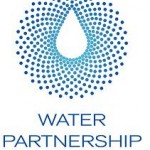Water Hackathon: Lessons Learned, 2012.
The global revolution in low cost information and communication technologies can help address some of the developing world’s oldest challenges in water and sanitation. More people today have access to a mobile phone than to a toilet. Convergence of widespread mobile phone ownership with new mobile commerce and location aware services offer new platforms for reach, transparency and participation in achieving water security.
Objectives – The 2011 Water Hackathon was a first-of-its-kind gathering of software developers with the aim of increasing awareness of water sector challenges facing developing countries amongst technical communities in-country and globally. Water Hackathon had four interim objectives: (i) creation of a network of atypical partners engaged in finding solutions to water-related challenges, (ii)preparation of a list of challenges facing the water sector, (iii) development of new applications designed to address these challenges, and (iv) adoption of new applications and codes inW orld Bank projects.Water Hackathon adopted many of the methods for engagement of technologists from the software community. The team also sought to adapt—or re-engineer—the methodology to suit atraditional development sector. In this context, Water Hackathon should be seen both as a process as well as a series of events intended to build a lasting community around water innovation needs.
Outcomes – Water Hackathon took place simultaneously in ten cities around the world. From Lima to Cairo toBangalore, over 500 local technology specialists competed to build prototype solutions to water-sector challenges defined by governments, utilities, civil society groups, World Bank experts, and directly by citizens.By embracing a competition model common in Silicon Valley, and through partnership with tech organizations, universities and community leaders, the World Bank was able to leverage its brand todraw attention to development water problems. Overall, more than 60 prototype solutions were built in response to the 113 water sector challenges defined.The team observed that in order for hackathon outputs to lead to meaningful outcomes for beneficiaries, there is a need for more iterative learning, transparency and sharing of experiences and tools as a means to improve water and sanitation services.
Process – The hackathon event was preceded by an iterative process of consultation, definition andrefinement. These processes identified significant challenges in the water sector judged amenable to technology solutions. They were then reframed in a way that allowed computer programmers—often unfamiliar with the water sector—to understand and address them directly.Strong partnerships with local technology leaders allowed the World Bank to reach this community, and the response was enthusiastic. The iterative process of defining pressing problems also brought to the surface existing and nascent innovations and innovators within the water community. This deepened their engagement and strengthened their ties, both to one another and to the hackathon community.
Follow-up – The process also emphasized the importance of follow-up activities after the hackathon. Winning teams were rewarded with business incubation support and offered further opportunities to engage with their water counterparts. In some cases, this led to financing start-ups and the recruitment of local developers by various governments. These outcomes reinforce the conviction that in order to achieve lasting impact, a hackathon should be part of a process, not just a one-off event, with deep preparation in both expert and local communities, as well as follow-up.
Lessons – The openness of the approach attracted considerable attention from within the water community and also from print and online media, including blogs and social networks, which traditionally do not feature water content. “This was the new Egypt at work,” said one participant in Cairo. Water Hackathon offered a low-cost, high-reward opportunity to open up water sector challenges to the talent and creativity of the ICT design and development community. This approach also required a change in mindset for the World Bank, calling for greater openness, experimentation and tolerance of failure. Other development sectors willing to take this risk may find useful the lessons learned in the process, which are detailed in this paper



